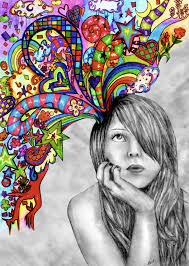 I have noticed how autistics can mistakenly be perceived by others as “mature”, despite the fact that they are almost always chronologically older, than their actual emotional maturity and awareness and until they have been around longer than others, often not street-wise and are likely to struggle to understand things their neurotypical peers find instinctive. Maturity means experience in life, learning from those experiences, gaining wisdom from those experiences and presenting a somewhat “sensible” face to the world and more than might be expected for your age.
I have noticed how autistics can mistakenly be perceived by others as “mature”, despite the fact that they are almost always chronologically older, than their actual emotional maturity and awareness and until they have been around longer than others, often not street-wise and are likely to struggle to understand things their neurotypical peers find instinctive. Maturity means experience in life, learning from those experiences, gaining wisdom from those experiences and presenting a somewhat “sensible” face to the world and more than might be expected for your age.
Autistics often hold back when in social situations, they may struggle to know what to say or when to say it, or have plenty to say a-la-monologue, but be scared to start, having had adverse reactions in the past. They may have social phobia, or be shy. They are very likely to behave atypically, is the bottom line. Many, especially females, will attempt to mimic peers to “fit in”, but with something being slightly ‘off’. Many autistics have a strong moral compass, or a phobia of everyday things, or a confusion over why other people behave and communicate the way they do. So the autistic is likely to be reserved, to hold back. This can present an image of seriousness, they may also be studious which will add to this ~ a geeky type. To others, this comes across as “mature”. A teenage autistic girl for instance, is unlikely to be gossiping (even if she makes a brave effort to join in, because autistics usually struggle with small talk and don’t see the point in talking about what others are doing salaciously), talking about parties and boyfriends or plastered in make-up and rolling her skirt up so high that it barely covers her underwear. Not unless she has taken mimicking to the extreme anyway. This will stand her out from neurotypical peers. The absence of what are seen as the “typical” behaviours of peers, makes the autistic appear sensible and mature.
It’s frustrating that neurotypical observers make such assumptions about autistics. I always say, autistics might do (or appear to) the same things as neurotypicals, but for very different reasons. Autistics struggle to predict and usually take others at face value. Whereas neurotypicals seem to have a radar for judging what is likely to happen and to analyse the words and actions of others. Trouble is, this means they project ~ and this rarely works on an autistic!
So this reminds me again, how little autism awareness there is. Autistics struggle to survive in a largely neurotypical world, we try to learn what neurotypicals mean by what they say and do. But neurotypicals seem to think they’ve got the t-shirt already and apply their belief-system based on their way of thinking, to autistics. Autistics are the minority, we think differently, we often behave differently. Some have likened it to neurotypicals being Windows (for instance) and autistics being Linux ~ we are on different operating systems.
They say “never judge a book by it’s cover” but autistics are misjudged that way all the time, by the neurotypical tick-box. This affects everything. From schools thinking an autistic child is in no difficulty because they are masking and mimicking, to professionals wrongly judging families/parenting by the neurotypical tick-box, to every single interaction an autistic has with neurotypical people.
If I could explain to a neurotypical the way my mind works, I would. I doubt I could though. All I know, is that from as early as I can remember, I found others strange and wondered why they behaved the way they do and said the things they said. I never felt I fitted in. It’s a very deep level of difference. So to all neurotypicals out there, if you happen to know someone is autistic, don’t ever assume ~ and if they don’t mind talking about their autism, why not ask them things to see what their perspective or reasoning is. Even hearing the answers won’t tell you what it’s like to exist as an autistic, it will be just the tiniest sliver of their processing that won’t even amount to a clue. But it might challenge the way you think and make the world that little bit easier for autistics.
 What is imagination? It’s the ability to think up scenarios, settings, possibilities and things. Autistics are completely able to do this – yet the myth persists that autism means impaired or absent imagination. There has been a grave misunderstanding of the fact that it’s
What is imagination? It’s the ability to think up scenarios, settings, possibilities and things. Autistics are completely able to do this – yet the myth persists that autism means impaired or absent imagination. There has been a grave misunderstanding of the fact that it’s